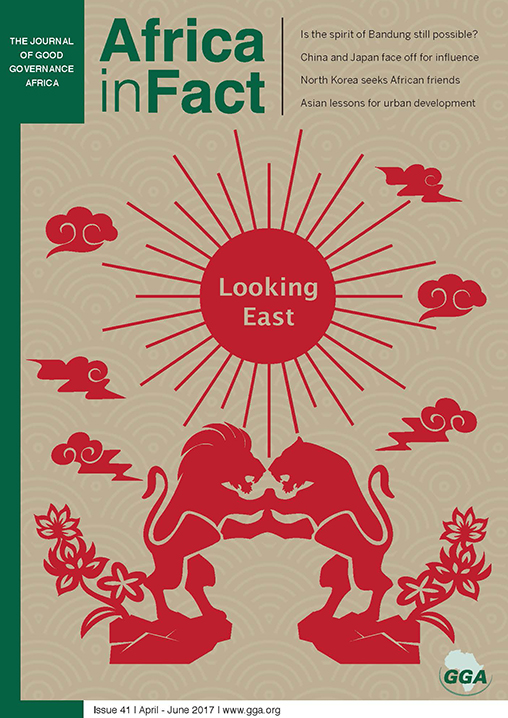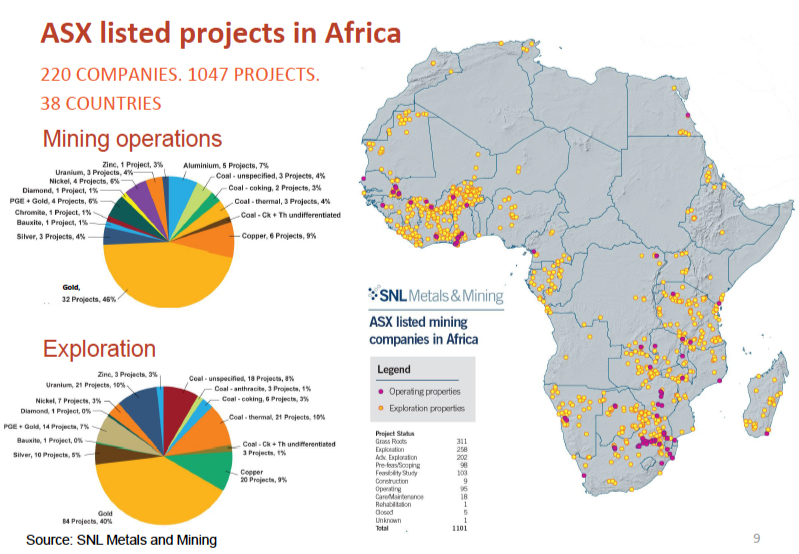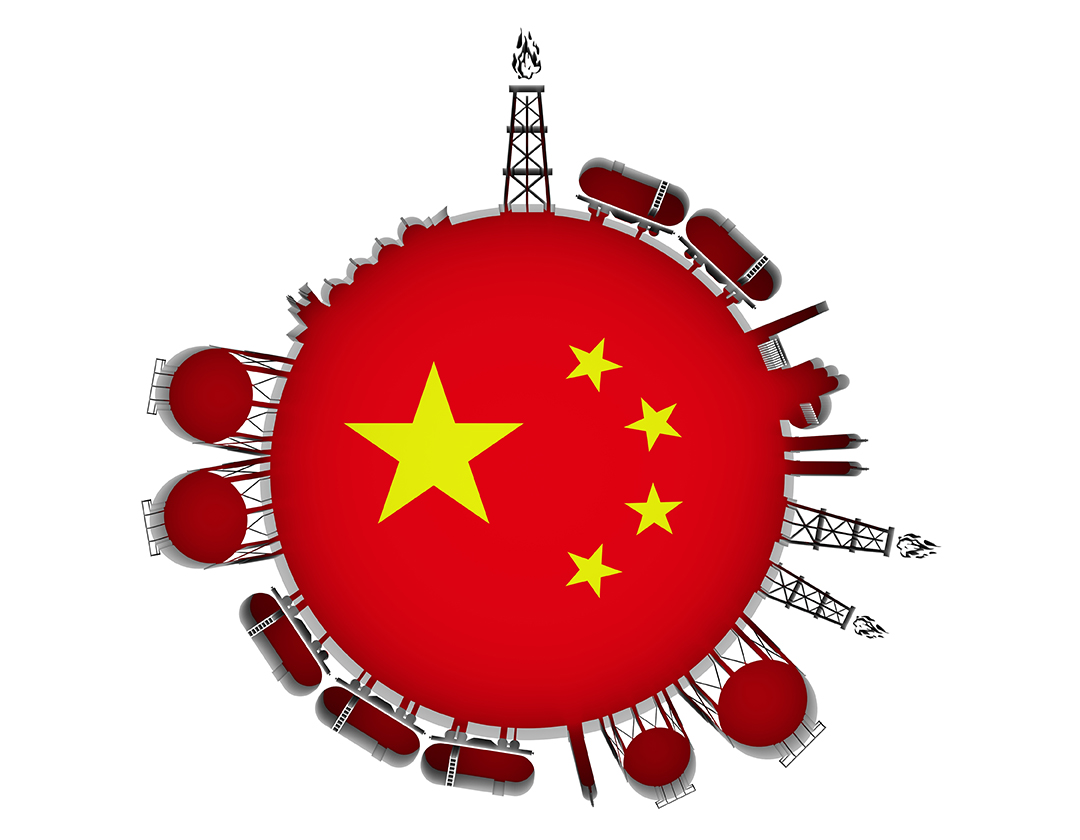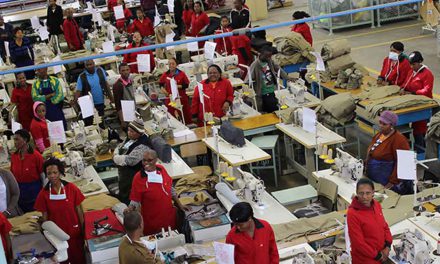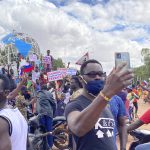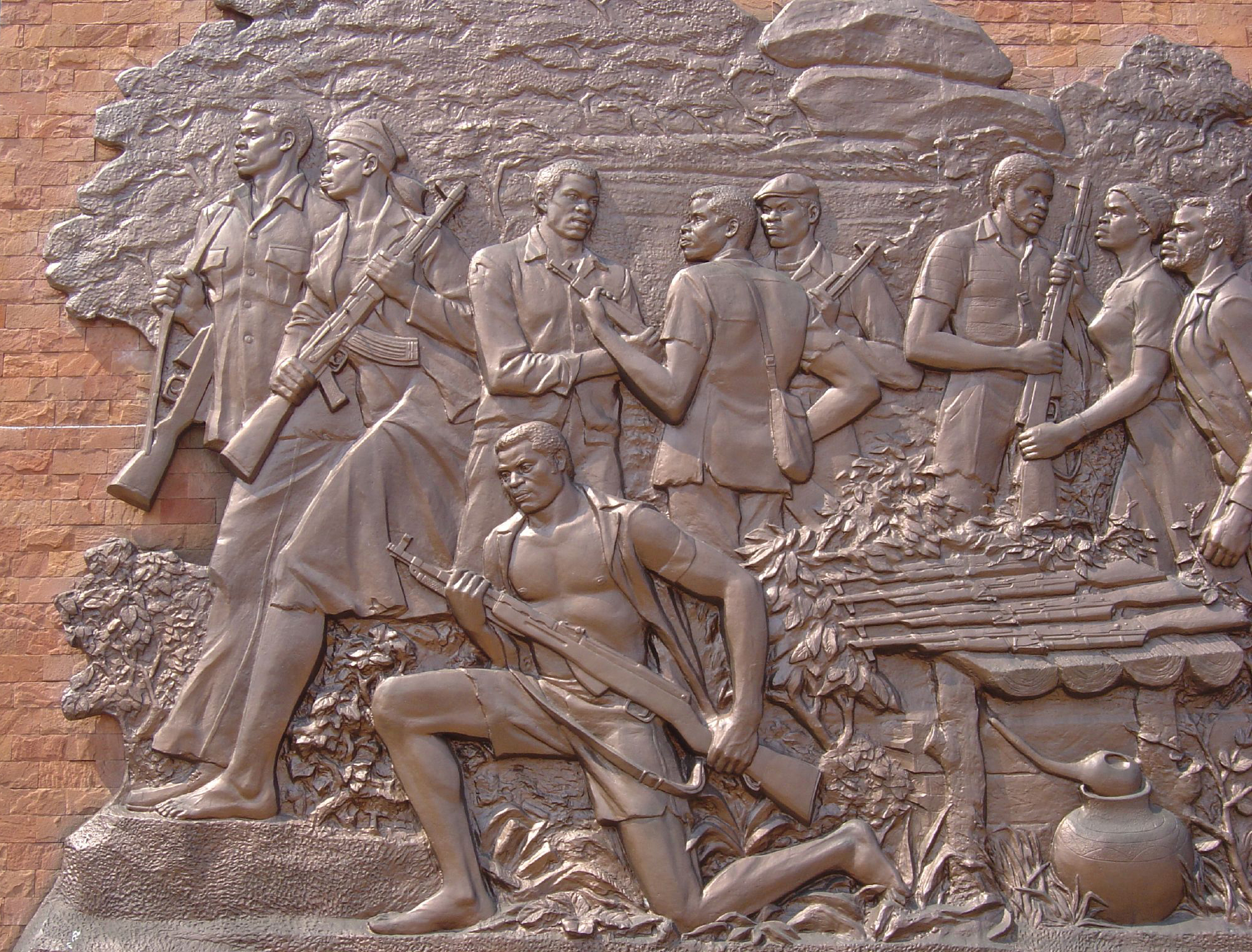
A North Korean Firm was involved in the construction of Zimbabwe’s Heroes Acre, pictured here.
Liberation struggle ties bind Africa to North Korea, and despite UN sanctions, the nation enjoys a reciprocal market for materiel, and more, on the continent
The mere mention of Democratic People’s Republic of Korea (more commonly referred to as North Korea) reminds most Zimbabweans of a dark era: the Gukurahundi massacres, concentrated in the Matabeleland and Midlands regions of Zimbabwe, in the early 1980s. Some 20 000 people, mostly civilians, were killed, while many others were maimed or displaced.
The killings had been carried out by the Zimbabwe National Army’s Fifth Brigade, which had been trained by military experts from the Asian nation.
The state-sponsored military operation had targeted former Zimbabwe African People’s Union (ZAPU) leader Joshua Nkomo’s supporters. President Robert Mugabe’s government accused some of those supporters, soldiers themselves, of deserting the army to destabilise the country. The killings stopped in 1987 after Mugabe and Nkomo signed a unity accord, which merged Mugabe’s Zimbabwe African National Union-Patriotic Front and ZAPU.
Three decades have passed since the massacres, but Gukurahundi still stirs passions. Mugabe’s government has kept a tight lid on what happened during the operation but civil society, pressure groups, victims and ordinary Zimbabweans continue to demand justice.
Dumisani Nkomo, a social commentator and Nkomo’s nephew, says memories of the massacres have left open wounds, as there has been no closure for the victims or their families. “The Holocaust happened over 70 years ago, but still people are arrested [following on] the Nuremburg trials. Many who were not directly affected are still talking about it,” he said.
But because of its role in the liberation struggle, some Zimbabweans, like many other Africans, have a soft spot for the Asian nation, which they see as having contributed to the fight against colonialism.
Along with training members of the Fifth Brigade, North Korea instructors also trained many freedom fighters from the Zimbabwe African National Union’s armed wing – the Zimbabwe African National Liberation Army (ZANLA) – during the liberation struggle. They also trained other liberation armies across the continent, and assisted ZANLA with weapons.
Currently many African countries enjoy trade and bilateral relations with the country, although North Korea is widely regarded as a rogue and authoritarian state and is under United Nations (UN) sanctions. North Korea has also been providing military assistance and hardware to some African countries despite UN Resolution 1718 of 2006, which cemented into international law the condemnation of Pyongyang’s nuclear and missile programmes.
The resolution barred UN member states from dealing with North Korea with respect to major weapons systems, missiles, and nuclear and other related activities and goods. Subsequent resolutions – notably 1874 of 2009, 2087 of 2013, 2094 of 2013, and 2270 of 2016 – tightened the sanctions by barring all trade in arms with North Korea. The UN forbids member states from receiving police, paramilitary or special forces training from North Korea.
Resolution 2270 restricted trade activities with North Korea, but failed to stop trade between that country and other countries in Africa.
A 2016 research report by the Institute of Security Studies (ISS): “Cooperation between African States and the Democratic People’s Republic of Korea”, reveals that some African countries actually stepped up trade with North Korea after the introduction of Resolution 1718 of 2006.
“An analysis of data released under the Harmonised System (HS), developed by the World Customs Organization (WCO), related to trade activities between African states and North Korea shows an increase since the adoption of UN Security Council Resolution 1718 in 2006,” reads the report.
“From 2007 to 2015 the value of trade activities between African states and North Korea amounted to an average $216,5 million per year, against an average of $90 million per year from 1998 to 2006. A peak was observed in 2010, with the total trade value between African states and North Korea rising to $627 million.”
Trade between Africa and North Korea has however slowed over the last few years, according to the report. Between 2011 and 2015 the value of trade averaged $118 million against $337 million from 2007 to 2010.
A report by a UN panel dated 22 February 2016 indicates that some African countries have been trading in arms with North Korea despite the UN resolutions. The report states that in 2013 a shipment of Scud missile spare parts to Egypt was intercepted.
It further reveals that a North Korean company, Korea Mining Development Trading Corporation (KOMID), which is listed by the UN, could have conducted business in Namibia until 2015. The panel suspects that KOMID did business through an alias, Mansudae.
Namibian authorities, according to the report, told the panel that the country had contracts with North Korea concerning arms and related materiel before 2005. Namibia also confirmed that it had received training and technical assistance relating to arms, but stated that the North Korea experts had returned to their country in view of the sanctions.
The UN panel was however convinced that Namibia had violated UN resolutions, despite its denial. “Satellite imagery shows that construction at the military base at Leopard Valley was continuing in September 2014. The Mansudae company brochure also advertised the 2010 contract with the ministry of defence for the construction of facilities at Leopard Valley,” according to the report.
“The Panel confirmed that, as at August 2015, workers from the Democratic People’s Republic of Korea were undertaking construction activities at another military base in Suider Hof … The construction of any munitions factory or related military facilities is considered to be services or assistance relating to the provision, manufacture or maintenance of arms and related materiel and therefore prohibited under the resolutions.”
The panel also reported that some spare parts and equipment for submarines and military boats, which originated from North Korea, were shipped to Angola in 2011. According to the report North Korea continues to provide technical training and assistance to a number of African countries, in violation of the resolutions, by exploiting its long-standing military relationships.
“These prohibited activities are conducted for financial reasons but are also consistent with the country’s overall diplomatic and international outreach,” said the UN.
The report lists Uganda as a beneficiary, and the Ugandan authorities “confirmed that 45 nationals of the Democratic People’s Republic of Korea, including 19 security instructors for the paramilitary police, had provided such training and that it was continuing as at December 2015”. The panel concluded that the training violated Paragraph 9 of Resolution 1874 (2009).
Other countries said to have received training and leadership-protection courses include Benin, the Democratic Republic of the Congo, Egypt, Mozambique, Namibia, Nigeria, Libya, Seychelles, Uganda and Zimbabwe. Political and security sector analysts believe relations between Africa and North Korea have continued to flourish because of the bond created during the liberation struggle.
“The relations have to be cast in the 1950s, three-year Korean War that ended in July 1953, versus the historical memories of the second World War (1939-45), when Korea was invaded and on the point of balkanisation and ended up divided between North and South over the 38th parallel. Emerging from this tense period, North Korea needed diplomatic allies against the perceived attempts at invasion – a factor that has since influenced its development of the nuclear weapon as a deterrent,” says Dr Martin Rupiya, African Public Policy & Research Institute executive director, and a visiting fellow at the Institute for African Renaissance Studies at the University of South Africa.
“[North Korea] later established relations with [the] Third World and a decolonising Africa during the 1960s-70s period. Each of these was a potential vote on the international struggle taking place within the UN, and in which Russia and China still had to become established.
“A poor North Korea has always facilitated, in a modest way based on its Juche [“self-reliance”] ideology, relations with a handful of African states by offering military, aviation and naval equipment and training, including operating major weapons systems such as artillery and aviation, and significantly, large museums and memorials such as Heroes’ Acre,” he told Africa in Fact.
Rupiya adds that authoritarian nations may find it convenient to trade in arms with North Korea because this allows them to acquire weapons to “suppress perceived competitors without serious questions raised from the materiel supply nation”.
Consultant Nicolas Kasprzyk, who co-authored the ISS study, agrees that the relationship between North Korea and many African nations is rooted in the liberation struggle.
“This productive relationship may be due to the historical links forged during the Cold War, when North Korea’s military trained and assisted African states in the struggles for independence from colonialism. Today, this relationship continues albeit in new forms, mainly commercial,” said Kasprzyk in a statement accompanying the report.
Researchers at the ISS believe North Korea is likely to continue engaging with Africa as a priority, because African nations represent a quarter of the UN membership and are thus an important part of the Non-Aligned Movement.
“The high number of conflict/post-conflict situations on the continent [also] makes it a market for security services (including specialised teaching and training), which [North Korea] is willing to provide,” concludes the report.
The report also states that many African nations “have had negative experiences with sanctions regimes themselves and may be disillusioned with the idea of imposing such regimes on North Korea”.
The report also states that, other than for diplomatic reasons “African states will remain a target for North Korea for hard currency and to enhance its ballistic missile and nuclear weapons programmes in various ways”.


